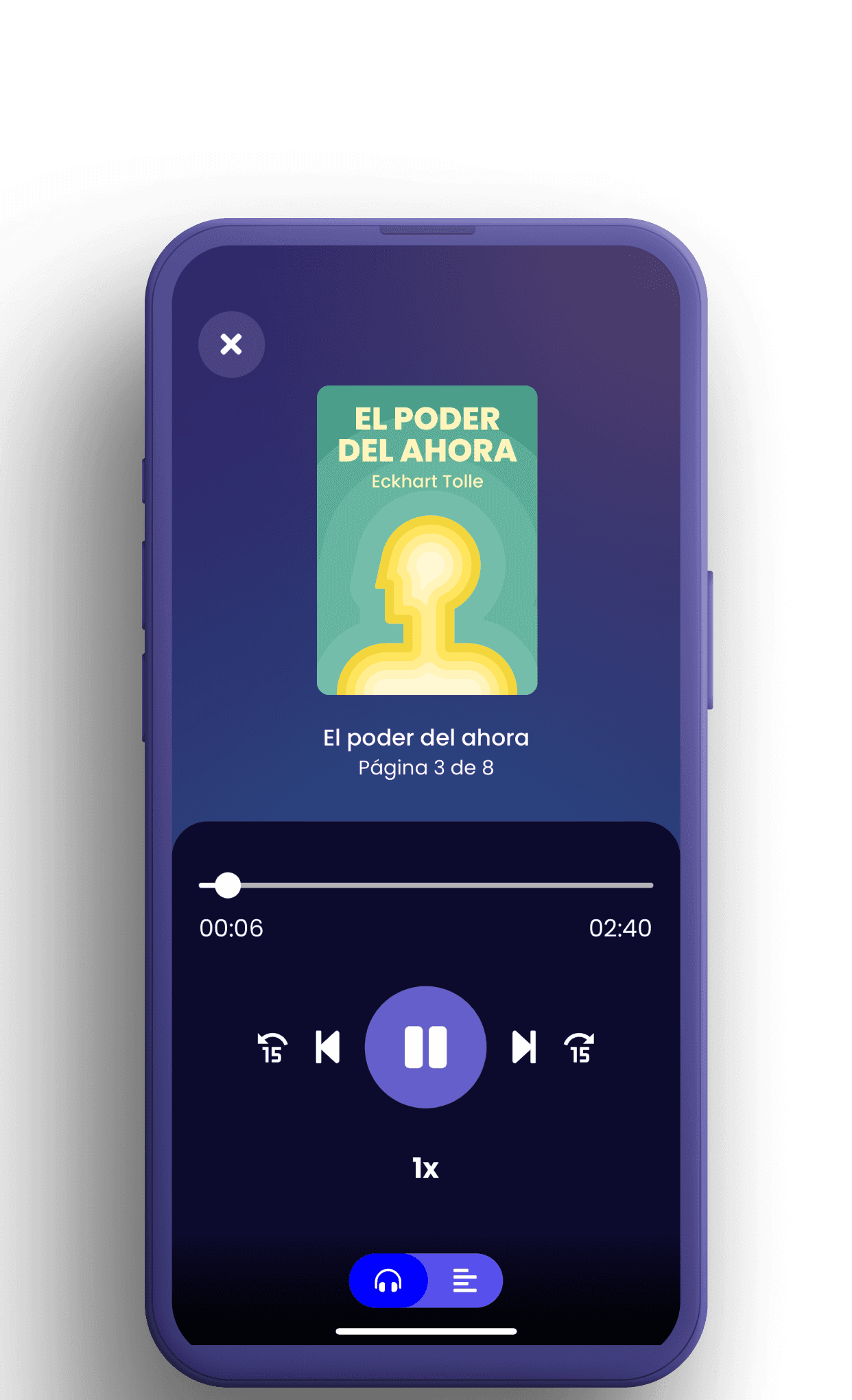Rich Dad, Poor Dad
Robert Kiyosaki
Vista general
LO QUE APRENDERÁS
Robert Kiyosaki shares the unique experience of being influenced by two father figures with contrasting financial and educational backgrounds. His biological father represents the "poor dad," while his friend Mike’s father is referred to as the "rich dad." This duality in his upbringing gave Kiyosaki two contrasting perspectives on money, wealth, and financial management.
Through his lessons, the author guides us on a path of financial education and empowerment. Each page immerses us in essential concepts and effective strategies, showing how we can apply this knowledge to improve our resource management and decision-making in our daily lives.
Puntos Clave
Lesson 1: The Rich Don’t Work for Money
Kiyosaki’s first lesson is that working just for money does not lead to wealth. Many believe that earning a higher salary will solve their financial problems, but this only increases dependency on work. True wealth is built by understanding money and making it work for you through investments and continuous financial education.
Lesson 2: Why Teach Financial Education?
In a changing world, the key to becoming wealthy is not focusing on money, but on financial education and mental flexibility. Saving is more important than earning. Accounting, although boring, is crucial for long-term financial success and should be taught in a simple and visual way.
Kiyosaki criticizes traditional education for not teaching about money and limiting creativity. He emphasizes the importance of distinguishing between assets, which generate income like investments, and liabilities, which increase expenses like mortgages. This understanding is vital for building wealth and avoiding financial crises.
Lesson 3: Mind Your Own Business
Ray Kroc, the founder of McDonald’s, understood that his real business was real estate, not hamburgers. By selling franchises, he was also dealing in properties, becoming one of the largest real estate owners globally.
The author suggests building your business while keeping your current job. It's crucial to acquire solid assets rather than liabilities that quickly lose value, like new cars. Focus on reducing expenses and avoiding debt. Starting a company should only be considered if there is a genuine interest, as most businesses fail. The key lies in strengthening your asset base.
The rich distinguish themselves from the middle class and the poor by acquiring luxuries after building a solid asset foundation. While the poor and middle class buy luxuries first, going into debt, the truly wealthy invest in assets and use the income to acquire luxuries, considering them a reward for smart investments.
Mantenete al tanto
de todas las novedades
Simplemente dejanos tu email y nosotros te avisamos todos los avances










